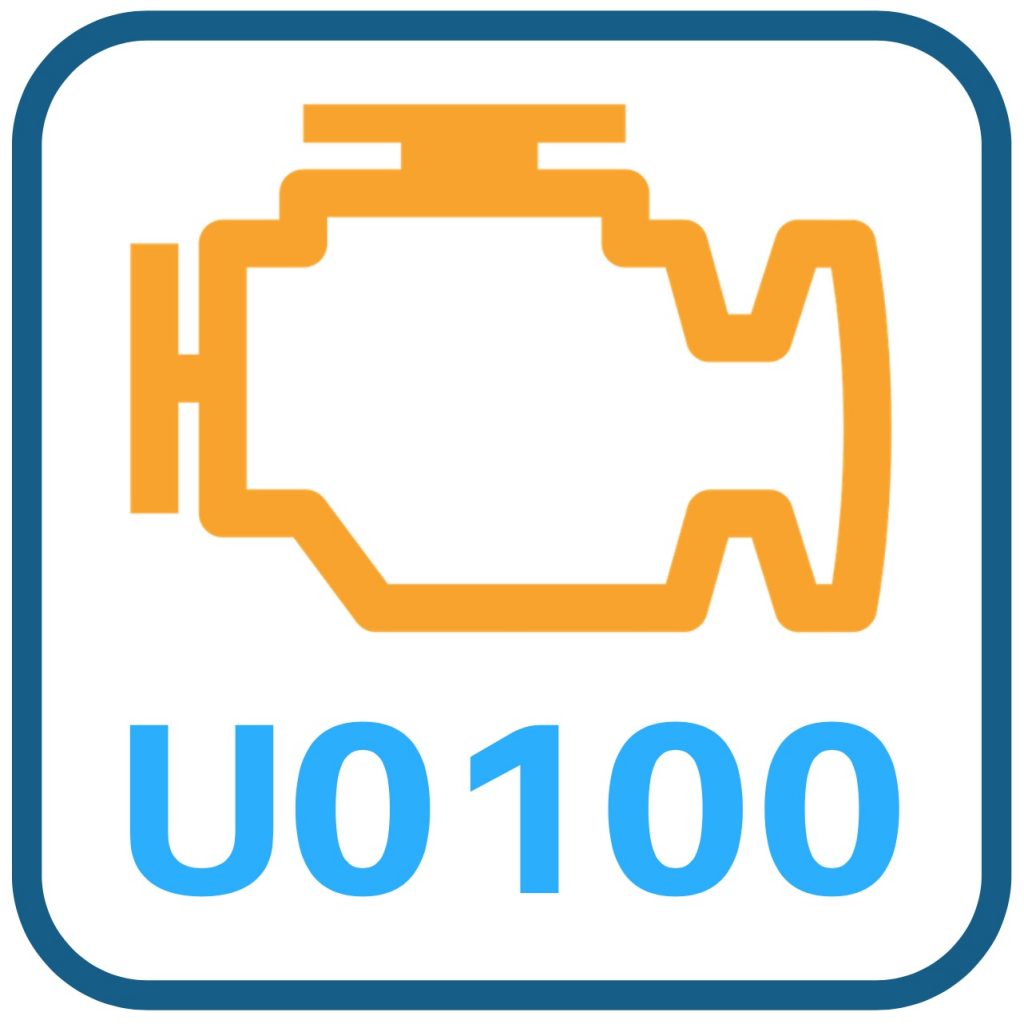U0100 is a generic network communication code, meaning it has the same definition for any vehicle made in the 1996 model year or newer. This code tells you that communication has been lost between the ECM/PCM (main computer) and a particular control module has been completely lost.
When a vehicle has U0100, most of the time, it won’t run or drive anywhere. The most common causes of U0100 are a bad PCM/ECM or TCM.
U0100 Definition: Lost Communication With ECM/PCM “A”

Here is the meaning of U0100:
Your vehicle’s main computer (ECM or PCM) uses a series of wiring harnesses to communicate with its main systems. In most cases, this wiring is referred to as CAN bus.
The CAN bus connects the PCM to all of the complicated control systems that a modern vehicle has, such as:
- PCM (Powertrain Control Module) or ECM (Engine Control Module). Two different names for the same thing.
- TCM (Transmission Control Module)
- ABS
- BCM (Body Control Module)
- Airbag modules
There can be as many as 18 of these modules. The newer it is, the more likely it is that more modules are communicating with the PCM. Many older GM vehicles combined the PCM and TCM into one unit. This unit was known as the ECU.
When one of these modules loses communication with the PCM, the code U0100 will present itself. Think about it like your car’s brain not being able to talk to its hands.
U0100 Symptoms
- Depending on how the vehicle is wired, there will be no crank, or it’ll crank but not start.
- The check engine light will be illuminated.
- If the problem is intermittent, the vehicle may run and die randomly at any time.
Being that the vehicle can run and die at any time, even if it starts back up after getting this code, we recommend having a mechanic look at it before driving it.
U0100 Causes + Diagnosis

There isn’t a whole lot that someone who hasn’t dealt with a code like this before can do. Typically, it’s going to be caused by a bad PCM or module. The first two steps are about getting as much information as you can and eliminating possibilities. P0100 doesn’t give you a lot to go on.
1. Check for TSB’s Related to the PCM and Control Modules
A great place to start diagnosing U0100 is to see if there are any Technical Service Bulletins (TSB’s) related to the PCM. CAN Bus, or control modules.
A TSB is a notice that manufacturers use to explain common problems with a vehicle and how to deal with them. If there are known problems that cause communication issues, it can really make fixing your vehicle a lot easier.
You can use this link to go to the NHTSA website VIN lookup tool. From there, you’ll be able to look up the TSB’s for your vehicle. If you don’t have the VIN handy, click the “vehicle” tab, and you can search by year, model, and manufacturer.
2. Check for Other Codes
U0100 will often appear with other control module-related codes. This can help minimize the potential list of causes, making the repair much easier.
For instance, U0101 indicates that the TCM has lost communication with the PCM. That’s a lot easier to deal with than the 15+ modules that a modern car or truck can have.
3. Inspect the CAN Bus Communications Connections and Wiring
There are at least two CAN bus locations on a vehicle. They can be almost anywhere.
The first two steps are the due diligence that you should do to confirm that it’s not likely that another issue would be causing U0100. Wiring issues are the easiest thing to diagnose at home. Here’s how to go about finding what’s causing a wiring issue.
- Find the bus connections.
- Inspect the wiring harness. You are looking for chafing, burnt wires, or melted wiring/plastic. Pay particular attention to anywhere that the harness needs to go around a bend or touches anything that could damage it. You are looking for an open/short. If there is damaged wiring, you’re going to need to repair the harness. If there doesn’t seem to be any visible damage to the harness, you’ll need to move on to checking the harness connections at the control modules.
- Inspect the harness connections. Once you’ve established that the wiring harness looks fine, the next place to look is where it plugs into your vehicle’s control module(s). Unplug the harness from the control module (s). Once unplugged, inspect the pins to see if there is any damage to them. If one or more of them look discolored compared to the rest of the harness, that is likely to be what’s causing U0100. You can use an electrical contact cleaner to clean the harness pins properly. Check to see if the module can communicate with a scan tool. If it can not, the only thing left is one of the modules or PCM has likely gone bad, which can be a real bear to deal with.
Conclusion
This code is difficult to diagnose, even for an experienced automotive technician. We recommend having it towed to a shop that works on your type of vehicle frequently. There are thousands of auto diagnosis articles on this site, and we’ve only recommended this on a few of these codes. Best of luck to you.
